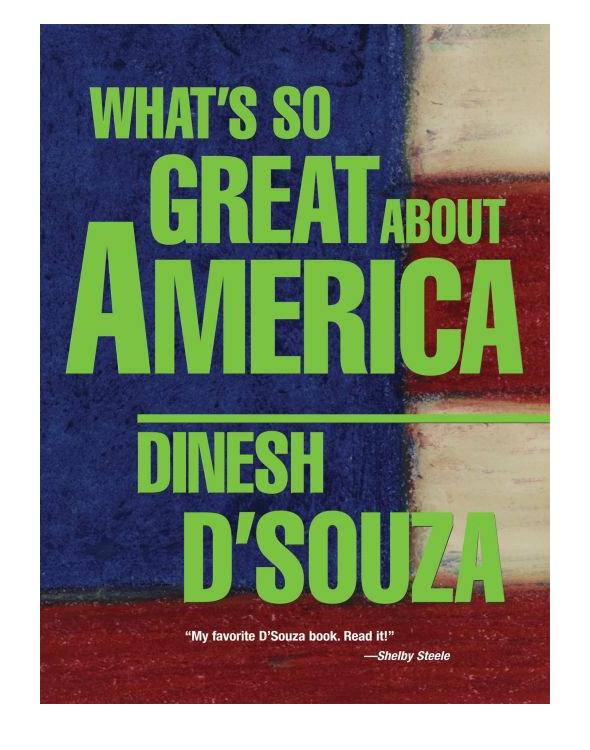
What's So Great About America
کتاب های مرتبط
- اطلاعات
- نقد و بررسی
- دیدگاه کاربران
نقد و بررسی

April 15, 2002
It's easy to see the appeal of D'Souza's patriotic cheerleading. A former domestic policy analyst under Reagan, he sees the world in black and white: on one side, America—"the best life our world has to offer"—on the other, "the enemy, which conducts its operations in the name of Islam." To his credit, D'Souza (Illiberal Education,
etc.) lays out his case well, although little here is new: America, he says, is a land of opportunity and freedom (D'Souza himself immigrated to the U.S. from India), and those who oppose American policy are simply jealous. But he doesn't stop with exhortations to fellow citizens about why the war against terrorism is righteous. D'Souza, a leading conservative thinker, revels in thumbing his nose at his ideological opponents: one of his chapters is provocatively named "Two Cheers for Colonialism." In this chapter, D'Souza trumpets the science, democracy and capitalism that he believes have led the West to global supremacy. Along the way, he spares no chance to bash those who he thinks have "denigrated" America and trivialized its freedom: multiculturalists, feminists, hippies and vegetarians. For the most part, D'Souza steers clear of criticizing his fellow conservatives, and when he does, as when he lectures them about the need to combine morality with freedom, he lacks specifics. In the end, reading D'Souza's book is similar to spending an hour listening to Rush Limbaugh on the radio—his fellow travelers will love it; readers on the left will love to hate it. (May)Forecast:Readers will have their choice of patriotic paeans this season: along with D'Souza's is William Bennett's
Why We Fight (Forecasts, Mar. 11) and Roger Rosenblatt's
Where We Stand: 30 Reasons for Loving Our Country (look for a review in coming weeks). There should be a strong market for these slender volumes.

April 15, 2002
There is no question mark in this book's title. Neoconservative propagandist D'Souza, born in India and a naturalized American, means to tell his compatriots why they should love their country. He begins by explaining "why they hate us." "They" are radical Muslims, and "why" is because they are losing power to advancing liberal democracy. From that position, D'Souza steps back to answer some major complaints against the West, and the U.S. in particular, because of colonial exploitation, racism, and a tawdry commercial culture. He acknowledges those evils but maintains that the benefits of Western culture, such as technological development, equality before the law, and individual self-determination, far outweigh them. He contrasts the social strictures of India with the openness of the U.S., which makes it a magnet for immigrants, and observes that Americans too often measure their country, but not other nations, against absolute standards of rectitude. Comparing nations would make Americans realize that the U.S. is "the greatest, freest, and most decent society in existence." A warm as well as heated argument.(Reprinted with permission of Booklist, copyright 2002, American Library Association.)

























دیدگاه کاربران